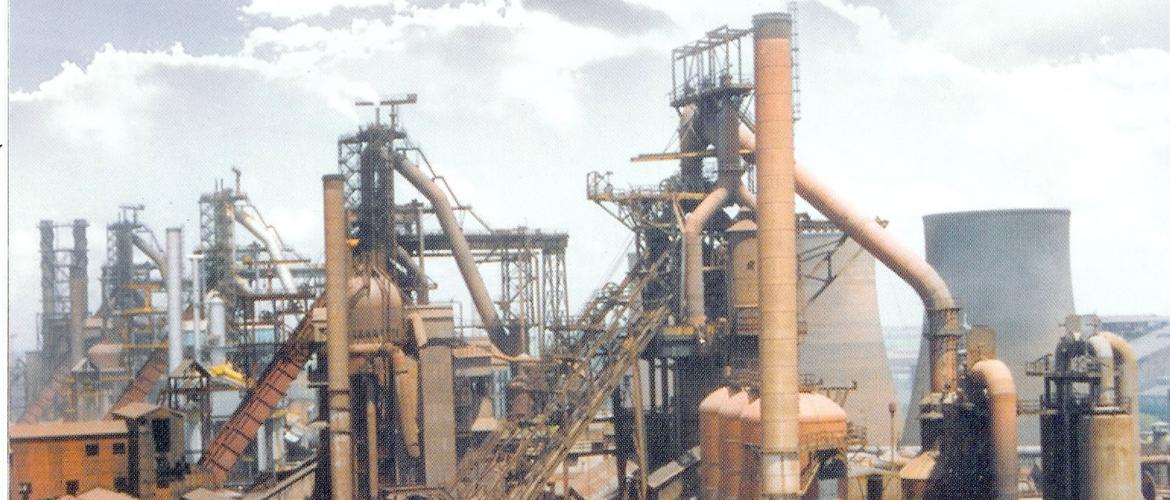Indian exports and the US-China trade war
May 21, 2019 | Expert Insights

Background
Two of the world's largest economies, the US and China, are involved in a year-long trade war. Washington has accused China of intellectual property theft and forcing American firms to hand over technology in exchange for access to the Chinese market. They are also locked in a dispute over their trade imbalance.
President Trump imposed import taxes on US$ 250 billion on Chinese products - 25 per cent on US$ 50 billion worth and 10 per cent on the other US$ 200 billion. China retaliated by imposing duties on $110 billion of US products. Although events indicated that progress had been made to end the trade war, tensions recently escalated. Talks have not succeeded because of fundamental disagreements over trade concessions. Both sides have since implemented further sanctions on the other, sparking fears of global economic repercussions.
India is the 9th largest trading partner of the United States and the 11th biggest partner of China. India's position as a strategic trade partner of both countries makes it's economy likely to be affected by the trade war.
Analysis
India Ratings and Research, a subsidiary of the Fitch Group, recently published a report stating that Indian exports are likely to be affected by the ongoing trade war between the US and China. The report said that products such as electronic items, iron, steel, organic chemicals and pharmaceuticals are likely to be most affected by lower prices.
The report analyses China's historical tendency to price its products at predatory rates in several Emerging Markets (EMs). This, in turn, will disrupt the demand-supply dynamics of domestic markets in emerging countries, including those in India.
The trade war between the US and China is also expected to result in a fall in Chinese exports. This is likely to result in pressure on China's export-dependent Yuan and could lead to its devaluation. Indian Ratings and Research believes that this "could stimulate a competitive depreciation in the Indian Rupee, failing which the competitiveness of Indian exports could be affected."
The Rupee has performed relatively well in 2019, only losing 0.3% of its value. Analysts believe that the currency has been bolstered by large amounts of foreign inflows, allowing it to be largely insulated from the US-China trade war. Despite this, a stronger Rupee is a concern for exporters as India's imports of steel, capital goods and polymer from China could increase due to aggressive pricing.
A concern for India is that once the US and China reach some sort of agreement, will the US maintain status quo or target India that Its markets are not open enough for US goods and services.
The UN Conference on Trade and Development has warned of negative effects of trade disputes on a fragile world economy. It has said that “ an economic downturn often accompanies disturbances in commodity prices, financial markets and currencies, all of which have important repercussion’s for developing countries.” One major difficulty is that such trade conflicts could lead to currency wars, making dollar-denominated debts more difficult to service.
Finally, while the trade war has benefited Indian exports to the United States, the higher tariffs on Chinese imports can adversely affect India's domestic steel industry. India is the second largest producer of steel in the world, after China. The increased tariffs on Chinese steel in the US can result in China dumping its steel in the Indian market – at costs that could be lower than its cost of production. This would result in increased competition to India's steel industry both in domestic and international markets.
Counterpoint
India Ratings and Research have expressed some reservations about their own assessment. The report said, "the impact is difficult to quantify at this point in time and will be contingent on the Chinese production/capacity utilisation levels, global demand-supply scenario and a host of other evolving factors."
Assessment
Our assessment is based more on an empirical analysis as to how the leadership in China would respond to situations when it the ability to exports were thwarted. We find that a classic strategy adopted was to resort to reducing prices to create an arbitrage against increased duties. We feel this trend is likely to continue in the short term as trade tensions between the US and China persist. China is unlikely to give in to American demands to implement the concessions that they have asked during trade negotiations. China views this as an infringement on its sovereignty
We feel that if inflation and interest rates rise in the US because of the trade wars, investors might find it conducive to invest in the US instead of developing countries like India. Any volatility in the stock market can result in the price of gold which can impact our economy. Regardless of the prediction, we believe the real effects on India's exports are difficult to forecast given the abundance of factors that have to be accounted for.
Image Courtesy - The original uploader was P.K.Niyogi at English Wikipedia. [CC BY-SA 3.0 (http://creativecommons.org/licenses/by-sa/3.0/)]








Comments